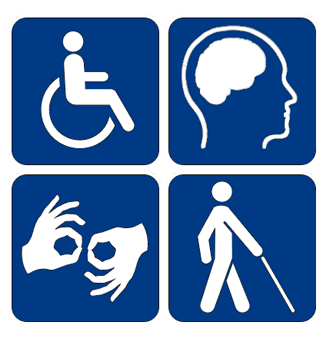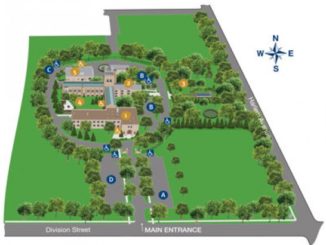
By Kanoa Ikeda-Flynn
Living with a disability, whether physical, mental, or both is not an easy task. Many times, we aren’t even aware of those who are afflicted unless the illness is affecting us. With each academic year bringing larger freshman classes and transfer students, accommodations and awareness are becoming much more of a priority throughout campus.
According to the Centers for Disease Control, 61 million adults have some form of disability which include mobility, cognition, independent living, hearing, vision, or self-care. This makes up 26% of the population not counting children nor, un-diagnosed cases.
To put that into perspective, Dominican is home to over 2,000 undergraduates and nearly 200 of which, that suffer from some form of mental or physical disability. Dominicans Disability Support Services (DSS) Coordinator Judy Paulus, recalled only 12 students who were affected by a disability in the year 2000, which is a staggering jump in the past few decades.
For students that suffer cognitively, a different issue is also found in the classroom.
When there is a student who requires accommodations, Paulus asks their professor what their expectations are for the course they are teaching. Paulus believes students’ assignments should be graded on their quality rather than how quickly they are completed.
“Is the goal to bring out higher quality or is the focus on how quickly a student can dish out work,” Paulus asks. “It’s not that a person is disabled, it’s the environment that needs to be altered. Just because it took me a day to read a book and you multiple, does not mean one person should be punished for taking a longer time.”
As of last year, a DSS representative was hired by Student Success for a thorough examination of Dominican’s accessibility and procedural standings. This is based off their scaling for what they deem as “up-to-code”.
According to Paulus, the results came back as satisfactory on the basis of physical improvement, and nearly perfect with policies and procedures in which she oversees. Regardless, Paulus believes “satisfactory” is not enough.
“Meeting the up-to-code compliance doesn’t mean it’s fully accessible and friendly for all disabilities,” Paulus said. “Just like how we have different strengths and weaknesses, our minds and bodies heal and take on disabilities differently; we need to be able to cater to each individual.”
There are many improvements such as new walkways, automatic doors, and handicap accessible desks that are needed, but in order for such renovations to happen, they need to be approved by staff.
Paulus believes that disability is often left out from diversity talk and institutional awareness unintentionally; it’s mostly the students that have the biggest say on what takes precedence.
According to Paulus, the best way to improve the accessibility issue is by having the student body prioritize their desire to improve upon it. By doing so, it promotes the general wellbeing, truth, and compassion that Dominican stands by.
ikedkano@my.dom.edu



